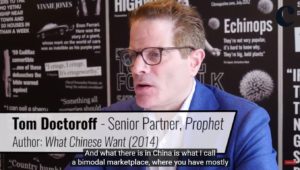 |
| Tom Doctoroff |
Emarketer:
Tom Doctoroff:
More at Emarketer.
Tom Doctoroff is a speaker at the China Speakers Bureau. Do you need him at your meeting or conference? Do get in touch or fill in our speakers' request form.
Are you looking for more luxury experts at the China Speakers Bureau? Do check out this list.




